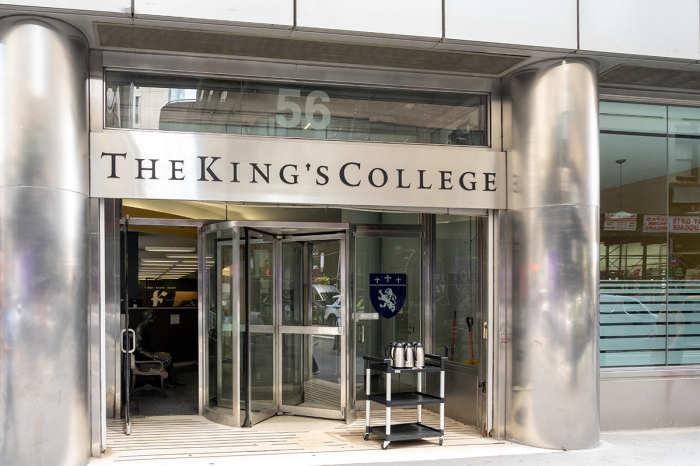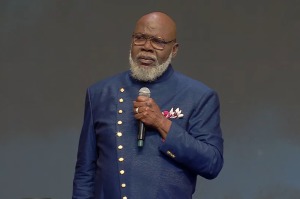The King's College to lose accreditation by Aug. 31

The King’s College, a prominent Christian liberal arts college in New York City, is expected to lose its accreditation by the end of August.
The Middle States Commission on Higher Education (MSCHE) announced Friday that King's College, which had already opted to cancel its fall semester classes, had failed to fill out the "required substantive change request for institutional closure."
MSCHE went on to note that King's College had "failed to update public disclosures pursuant to Commission policy and procedures" and "failed to meet its membership responsibilities," and so as a result, "accreditation will cease on August 31, 2023."
The college, which severed its partnership with Primacorp, a Canadian investment company, in April, has been seeking a strategic alliance since January, according to Empire State Tribune.
In July, the college's board of trustees announced that, due to financial issues, they would not be holding classes in the fall semester, though they stressed that they were not planning to close the campus permanently.
"The Board of Trustees and senior administration will continue to navigate the College's next steps and continue to contend for King's future over the coming months," a statement from the board that was emailed to The Christian Post last month read. "The Board is committed to continuing our efforts to pursue strategic alliance opportunities."
"We are also moving forward in the appeal process regarding our accreditation status with the Middle States Commission on Higher Education and are deeply grateful for the steadfast prayer and support of the King's community."
In late July, the MSCHE announced it considers the institution closed and no longer operational. The college plans to appeal the decision, which resulted in a ban on accepting or recruiting new students until the college regains its accredited status.
The college, which had relied on the generosity of billionaires such as Richard DeVos and Bill Hwang, had turned to another billionaire, Peter Chung, for help, Inside Higher Ed reported in March.
Chung provided a $2 million loan to the college and his for-profit education company, Primacorp Ventures, was hired by the college to launch an ambitious online program, noted IHE. However, employees believed the partnership with Chung had exacerbated the college’s financial troubles, with failed efforts including the online expansion.
The college’s online program, which was expected to bring in thousands of students and boost the bottom line, failed to materialize. The college’s deal with Primacorp, which would collect 95% of the online enrollment revenue, had been described as “absolutely unheard-of in the OPM (online program management) world.”
Despite the dissolution of the agreement with Primacorp, the company remained embedded in the college. Primacorp had the ability to nominate four of the nine trustees on the college’s board, and the college had incurred significant expenses related to the now-defunct online program.
Furthermore, Inside Higher Ed said, the college’s property was secured by a $10 million line of credit provided by Burnaby Investments, which is affiliated with Primacorp.
Michael Gryboski contributed to this article.





























